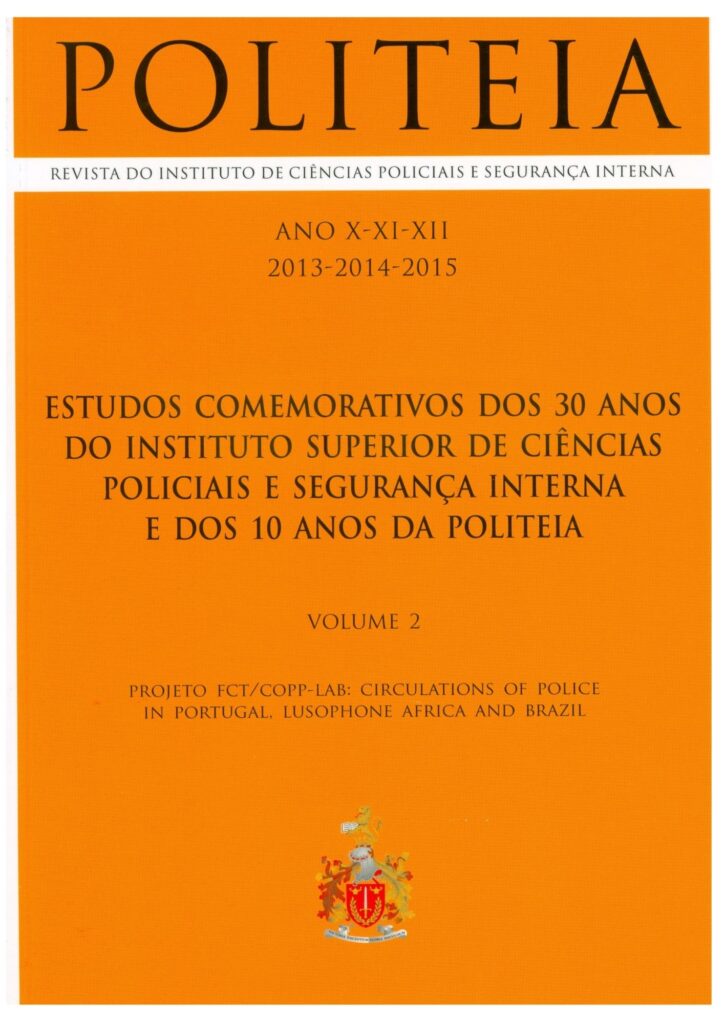Para lá dos códigos. O papel do Estado e a heterogeneidade do pluralismo jurídico em Moçambique
Key Words
O pluralismo jurídico é hoje um tema clássico da antropologia e da sociologia do direito. Apesar do longo percurso de reflexão teórica e evidências empíricas que converte em anacrónica a ideia de monopólio estatal de produção do direito e administração da justiça, o tema não se esgotou. As discussões conceptuais, as controvérsias sobre o significado político da pluralidade jurídica e a diversidade de formas que este fenómeno assume asseguram a atualidade e a relevância da investigação continuada nesta área. Este texto explora a complexidade, a riqueza e a heterogeneidade do caleidoscópio jurídico da sociedade moçambicana. Entre o período colonial e o presente, foram várias as transformações radicais que o Estado moçambicano atravessou e influenciaram o tipo de relação que foi assumindo com a pluralidade jurídica, por vezes excluindo as justiças comunitárias ou ignorando-as, outras vezes integrando-as, apropriando-se da sua legitimidade. A substituição oficial dos modelos políticos nunca rompeu definitivamente com o passado. As culturas políticas e jurídicas e as estratégias do Estado, presentes e passadas, cruzam-se com as dinâmicas locais e internacionais, constituindo virtualmente, em cada momento e em cada espaço, cenários específicos, tantas vezes surpreendentes. Esta complexidade não vigora apenas ao nível das instituições comunitárias, mas também do Estado, marcado por um acentuado pluralismo jurídico interno. Estudar as dinâmicas jurídicas neste contexto não pode limitar-se ao que está previsto na legislação, foi escrito nos livros de história ou em narrativas universalistas. A grande complexidade torna o processo de investigação mais exigente e os estudos de caso menos generalizáveis, mas faz da realidade em questão um campo privilegiado para o exercício de uma ecologia de justiças, que confronta a conceção liberal do direito e da justiça e as hierarquias impostas pelo cânone do direito moderno pelo (re)conhecimento da diversidade jurídica. O artigo divide-se em dois momentos principais: uma leitura histórica das opções estatais para lidar com a pluralidade, bem como de algumas estratégias usadas localmente para acatar ou resistir seletivamente às imposições centrais; e quatro retratos bem diferentes do pluralismo jurídico em Moçambique resultantes de um exercício de ecologia de justiças realizado em diferentes zonas do país.
Legal pluralism is currently a classic theme of anthropology and sociology of law. Despite the long journey of theoretical reflection and empirical evidence that construes the idea of state monopoly of production of law and administration of justice into anachronistic, the issue has not been exhausted. The conceptual discussions, the controversies regarding the political significance of legal plurality and the diversity of forms that this phenomenon assumes ensure the timeliness and relevance of continued research in this field. This paper explores the complexity, richness and diversity of the legal kaleidoscope of Mozambican society. Between the colonial period and the present day, the Mozambican state underwent numerous radical transformations which influenced its relationship with legal plurality, at times excluding community justices or ignoring them, at times integrating them, appropriating its legitimacy. The official replacement of political models never definitively broke with the past. The political and legal cultures and State strategies, past and present, intersect with local and international dynamics, virtually constituting, at every moment and in every space, specific, and very often surprising, scenarios. This complexity does not only apply to community institutions, but also to the state, marked by a profound internal legal pluralism. The study of legal dynamics in this context cannot be restricted to what is stipulated by law, written in history books or in universalist narratives. If the great complexity requires a demanding research process and inhibits the generalisation of case studies, turns the reality at issue into a privileged field for the exercise of an ecology of justices, confronting the liberal conception of law and justice and hierarchies imposed by the canon of modern law with the (re)cognition of legal diversity. The article is structured in two main stages: a historical reading of state options in dealing with plurality, as well as some local strategies to selectively accept or resist central impositions; and four very different depictions of legal pluralism in Mozambique resulting from an exercise of ecology of justices in different areas of the country.
Versão original
Versão original
Outros artigos nesta edição
-
Editorial
Manuel Monteiro Guedes Valente
-
Modelos Constitucionais de Polícia e Cooperação na Segurança Interna
Manuel Monteiro Guedes Valente
-
Para lá dos códigos. O papel do Estado e a heterogeneidade do pluralismo jurídico em Moçambique
Sara Araújo
-
Cooperação Internacional para a Formação de Polícias: um caso em Portugal
Susana Durão and Joana Oliveira
-
Efeitos Possíveis da Cooperação Policial. Oficiais entre Portugal e África
Susana Durão and Daniel Seabra Lopes
-
Renovações da Polícia em Angola: cooperação e formação internacional
Cristina Udelsmann Rodrigues
-
Cruzamentos em retorno: Polícias em Lisboa, Praia e Brasília
Joana Oliveira
-
O Modelo de Policiamento Comunitário nos Programas de Educação Policial: uma breve Revisão da Literatura Especializada sobre o Assunto
Paula Poncioni
-
Desafios e Avanços da Política de Formação Especializada de Profissionais de Segurança Pública no Brasil: Reflexões sobre a RENAESP
Ivone Freire Costa, Íris Gomes dos Santos and Anderson Souza da Silva
-
Polícias no Brasil: Entre Passado, Presente e Futuro
Célio Jacinto Santos
-
Diplomacia Policial
Guilherme Cunha Werner
-
Ideias de Chegada e Pontos de Partida. Diplomacia Policial: Formação e saberes
Manuel Monteiro Guedes Valente




